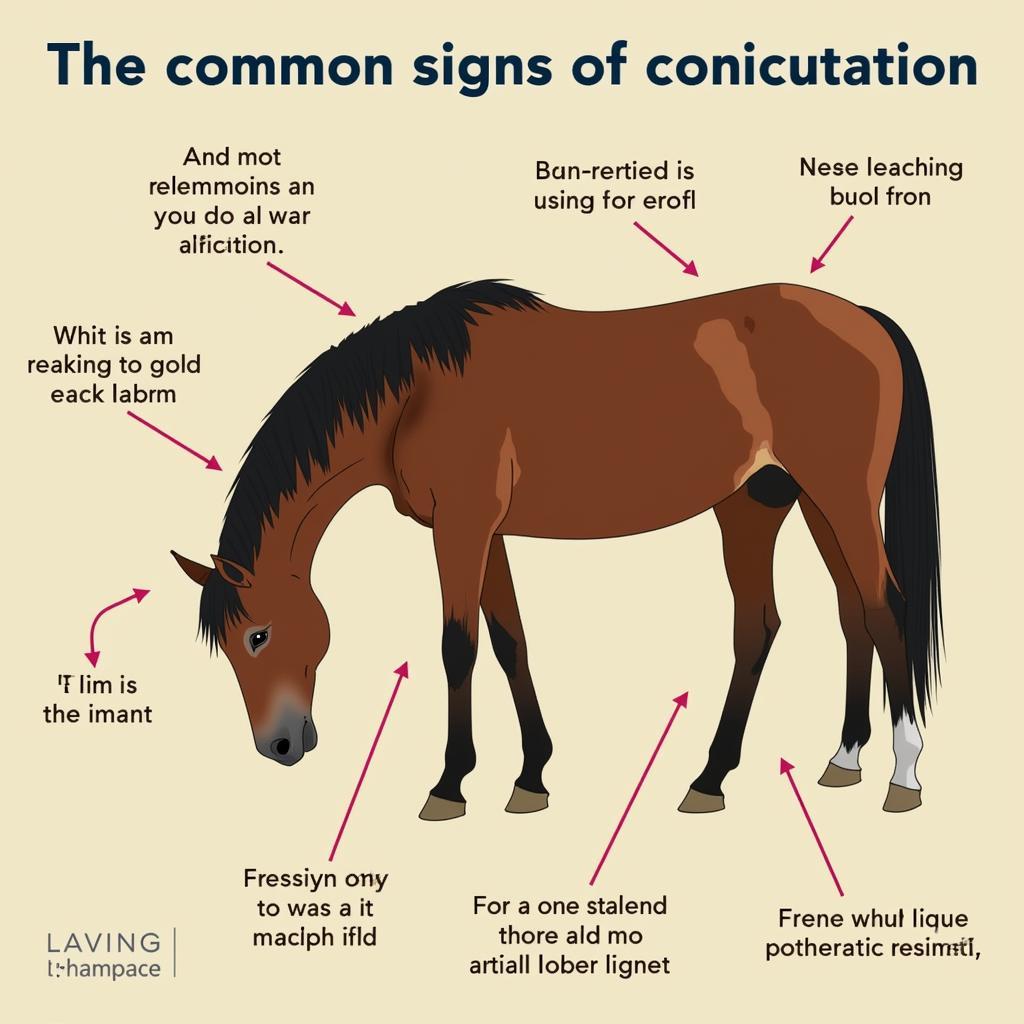Over-the-counter (OTC) pain relief for horses can be a valuable tool in managing mild to moderate discomfort. However, it’s crucial to understand the options available, their appropriate use, and potential risks. This guide will delve into the world of OTC pain relief for horses, empowering you to make informed decisions about your equine companion’s well-being.
Understanding Equine Pain and OTC Options
Horses, like humans, experience pain. Recognizing the signs, such as changes in behavior, gait, or appetite, is the first step. While veterinary intervention is always recommended for persistent or severe pain, OTC pain relievers can provide temporary relief for minor aches and pains. Common OTC pain relief options for horses include non-steroidal anti-inflammatory drugs (NSAIDs) like phenylbutazone (bute) and flunixin meglumine (Banamine). These medications are available in paste or powder form and work by reducing inflammation, which is often a source of pain. It’s vital to follow dosage instructions carefully and consult your veterinarian before administering any OTC medication.
 Horse Showing Signs of Pain
Horse Showing Signs of Pain
Choosing the Right Over-the-Counter Pain Relief for Horses
Selecting the right over-the-counter pain relief for horses requires careful consideration. Factors such as the horse’s age, weight, overall health, and the specific cause of pain should be taken into account. For instance, a young, healthy horse with a mild strain might benefit from a short course of bute, whereas a senior horse with underlying health conditions requires a more cautious approach. Always consult your veterinarian for guidance on the most appropriate OTC pain relief option for your horse’s individual needs. What is the best Over The Counter Pain Relief For Horses? The answer isn’t always simple.
Safe Usage and Potential Risks of OTC Pain Relief
While over-the-counter pain relief can be beneficial, it’s important to be aware of potential risks. Overuse or improper dosage can lead to side effects such as gastric ulcers, kidney problems, and even colic. Always adhere to the recommended dosage and duration of treatment. Never combine different OTC medications without veterinary guidance. Monitoring your horse for any adverse reactions is also crucial. If you notice any unusual signs, such as loss of appetite, lethargy, or changes in manure, discontinue the medication and contact your veterinarian immediately. Remember, even though these medications are available over the counter, responsible use is paramount for your horse’s safety. Seeking professional veterinary advice is always the best course of action. Proper pain management ensures your equine companion enjoys a happy and healthy life. Many horse owners search for the “best liniment for horses” to provide additional comfort and relief.
Conclusion: Prioritizing Your Horse’s Well-being with OTC Pain Relief
Over-the-counter pain relief for horses can be a valuable tool when used responsibly and under the guidance of a veterinarian. Understanding the available options, their appropriate use, and potential risks is key to providing your equine companion with safe and effective pain management. Never hesitate to contact your veterinarian for personalized advice and support.
FAQs
- Can I give my horse human pain relievers? No, human pain relievers are not suitable for horses and can be toxic.
- How long can I give my horse bute? Always follow your veterinarian’s instructions regarding the duration of treatment.
- What are the signs of colic in horses? Signs of colic can include pawing, rolling, sweating, and loss of appetite.
- What should I do if my horse experiences side effects from OTC pain relief? Discontinue the medication and contact your veterinarian immediately.
- Are there any natural alternatives for pain relief in horses? Discuss natural options with your veterinarian, as some may interact with other medications.
- How can I tell if my horse is in pain? Look for changes in behavior, gait, appetite, and vital signs.
- Where can I purchase over the counter pain relief for horses? Consult your veterinarian or reputable equine supply stores.
You might also be interested in learning more about fly masks for mini horses, finding the best ulcer supplement for horses, or exploring information on Equidone Gel. For a specific leg issue, you may find information on “charlie horse 1” helpful.
When you need assistance, please contact us at Phone: 0772127271, Email: [email protected] Or visit us at: QGM2+WX2, Vị Trung, Vị Thuỷ, Hậu Giang, Việt Nam. We have a 24/7 customer service team.